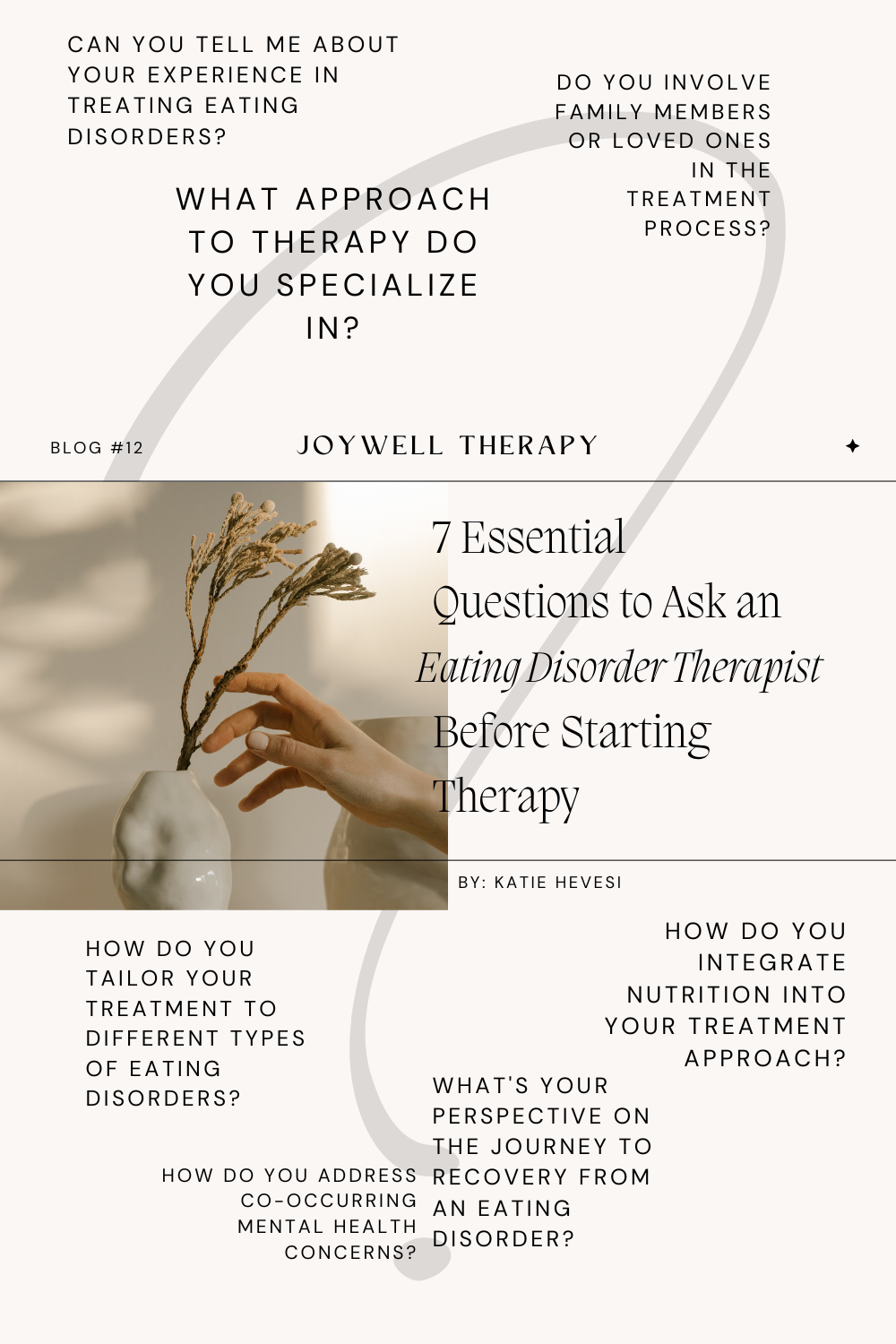7 Essential Questions to Ask an Eating Disorder Therapist Before Starting Therapy
Taking the first step toward seeking help for an eating disorder can feel like a mix of nerves and hope. It's a brave decision that deserves careful consideration, especially when it comes to selecting the right therapist. Before diving into therapy, it's crucial to have a heart-to-heart with potential therapists.
Here are seven important questions to ask them:
Can you tell me about your experience in treating eating disorders? I'd like to understand your background and expertise in dealing with eating disorders. How long have you been practicing, and what kind of training have you undergone specifically for this area?
What approach to therapy do you specialize in? Therapy comes in various forms, and I'm curious to know which ones you lean towards. Whether it's Cognitive Behavioral Therapy (CBT), Dialectical Behavior Therapy (DBT), or something else, I want to ensure your approach aligns with what I'm comfortable with.
How do you tailor your treatment to different types of eating disorders? Eating disorders can take many shapes and forms. From anorexia nervosa to binge eating disorder, each requires a nuanced approach. Can you shed some light on how you personalize your treatment for different types of eating disorders?
What's your perspective on the journey to recovery from an eating disorder? Recovery is a deeply personal journey, and I want to make sure we're on the same page. What are your thoughts on the various aspects of recovery, such as body image, food, and self-esteem?
Do you involve family members or loved ones in the treatment process? Support from family and loved ones can be invaluable. I'm curious about your stance on incorporating them into the therapy sessions and how you navigate family dynamics.
How do you integrate nutrition into your treatment approach? Nutrition plays a significant role in managing eating disorders. I'm interested in learning how you collaborate with nutritionists or dietitians and how you approach nutrition education and counseling.
How do you address co-occurring mental health concerns? Many individuals with eating disorders also struggle with other mental health issues. How do you prioritize and address these concerns alongside the primary focus on the eating disorder?
Conclusion:
Selecting the right eating disorder therapist is a pivotal step toward healing and recovery. By asking these questions upfront, you can gain a better understanding of the therapist's approach, expertise, and compatibility with your needs. Remember, it's essential to find someone who not only has the expertise but also feels like the right fit for you personally.
To further empower yourself on your journey, tune in to our JoyWell Podcast, where we delve deeper into topics related to mental health, self-care, and personal growth. Find us on Spotify, Apple Podcasts, and other major platforms, and don't forget to follow us on Instagram @joywellpodcast for updates and exclusive content.
For personalized support and therapy services, connect with us on social media. Follow us on Instagram @atl.therapist and @joywelltherapy for valuable resources, tips, and inspiration to support your mental health journey.

